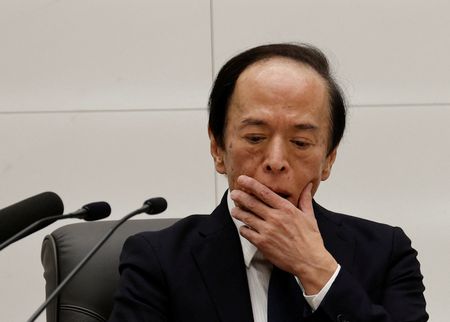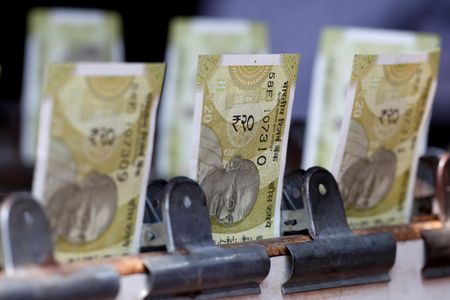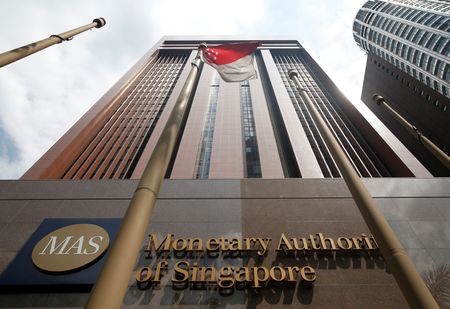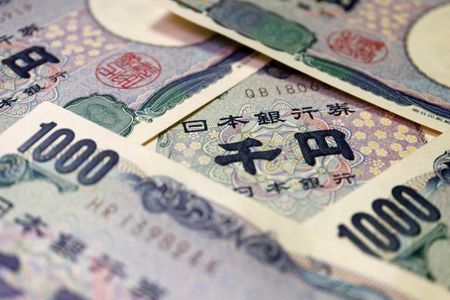By Leika Kihara
TOKYO (Reuters) -Bank of Japan Governor Kazuo Ueda said on Friday the central bank must be mindful of the chance the weak yen could affect underlying inflation by pushing up import costs and broader prices.
The BOJ has said it will continue to raise interest rates if it becomes convinced that underlying inflation, or price moves stripping away one-off factors, will stabilise around its 2% inflation target.
Speaking in parliament, Ueda said yen declines would push up import costs that will then be passed on to domestic prices, and work to push up consumer inflation.
“Compared with the past, the impact of currency moves on inflation may have become bigger because companies have become more active in raising prices and wages,” Ueda said.
“We must be mindful that price rises, through such channels, could affect inflation expectations and underlying inflation,” he said, adding the BOJ will be vigilant of such currency-linked effects on domestic prices.
The remarks come as the yen’s slide to a 10-month low against the dollar raises pressure on Japanese policymakers to combat further declines in the currency that would inflate households’ cost of living.
Yen moves have historically been key triggers of BOJ policy changes including last year, when the central bank raised interest rates in July amid political calls for steps to combat the currency’s sharp declines.
(Reporting by Leika Kihara; Editing by Christian Schmollinger and Shri Navaratnam)










